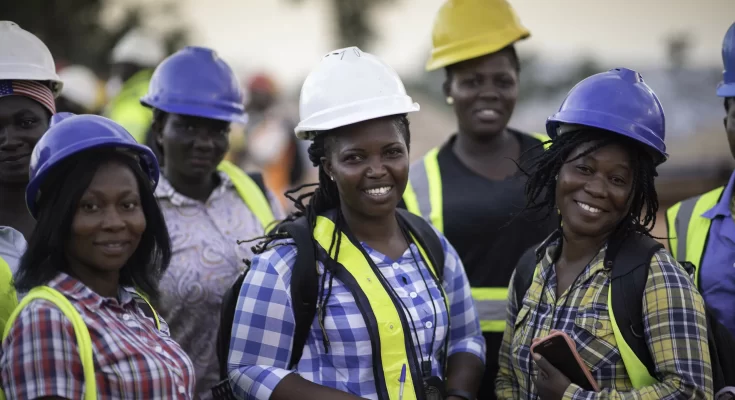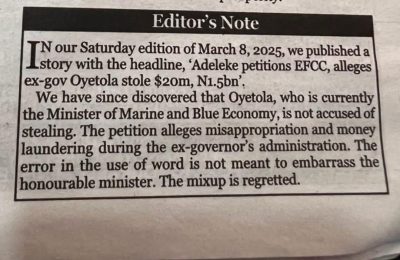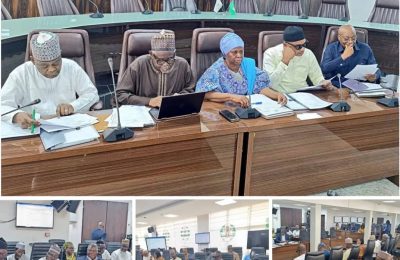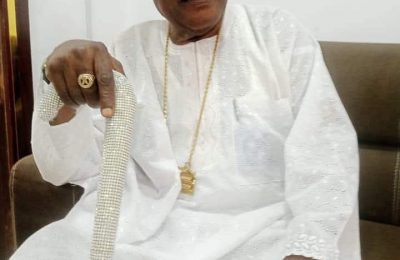
Yomi Ayeleso – Ado-Ekiti
The Women in Mining (WIM) in Nigeria has lamented the increasing child labour and gender abuse in Ekiti state’s mining sector, calling on stakeholders and policymakers to address the challenges in the state.

The program coordinator of WIM, Dennis Deloraine, who spoke in Ado-Ekiti, the Ekiti state capital, during an event tagged, ‘ Research Validation and Policy Dialogue ‘ noted that the outcome of the group’s research clearly showed that there is a need for stakeholders to collaborate in putting an end to the challenges identified in the extractive industry in the state.
The dialogue is part of WIMIN’s programme to Safeguard the Rights of Women and Children in the Mining Sector in Nigeria and is supported by Open Society Foundation (OSF) and in partnership with the National Human Rights Commission (NHRC)
Deloraine explained that the issues of child labour and gender abuse were dominant in Ire-Ekiti, Oye Local Government Area and Ijero-Ekiti, saying that the policy dialogue would afford the participants to proffer practicable solutions towards making the state’s mining sector thrives.
The program coordinator, however, commended the state for its inclusiveness of women in the mining industry, noting that Ekiti had fewer women and girl child violations.
She said, “ Well, while we received cases of gross violations of gender rights and child labour in the mining sector of some other states, we anticipated more negative reports in Ekiti State. On the contrary, we discovered that the system in Ekiti is more organized, well-informed, and highly inclusive. This is not only commendable but also worthy of emulation.
“I want to state at this point that our choice of Ekiti State as one of the implementation bases of this programme is well-considered and meritorious. Ekiti State has one of the most organized mining sectors in Nigeria and there is active gender participation in the solid mineral sector of the state.
“However, there is still much work to be done in the state’s mining sector. For instance, there is a need for the government and all state and non-state actors in the mining sector in Ekiti to place their radars on the menace of teen pregnancy in the mining host communities of Ekiti, particularly in Ire-Ekiti. Additionally, the hot chase for lithium in Ijero-Ekiti has exposed many women and children in that community to health risks.
“There are other specific issues we harvested during our research in Ekiti State. We hope to rob minds together, especially with policymakers and stakeholders here, to address these issues and clean up the state of child labour and gender abuse. If we can advance, Ekiti State will stand at an enviable position on the nation’s index of gender responsiveness.”
According to her, the clamour for equality in the mining and mineral sectors has gone beyond the group’s advocacy which she said has been embraced across the world with a reflection of gender balance in policies.
“ The globe has taken over the battle and many countries have ensured that their policies reflect gender as nobody wants to be reckoned with a society that has no respect or concern, at the least, for its women and children.
“It is my believe that in this global journey to progress, no one wants to be tied down or dragged behind by culture or sentiment, and that is the attitude I expect of the Policy Dialogue we shall hold in this programme,” she said.
On his part, the lead researcher and consultant for WIMIN, Dr. Kelechukwu Okezie, said in the investigations, the team observed that laws and institutions have been put in place in the state. Still, there are gaps, disclosing that “ a lot needs to be done because no child should be in mining when they are supposed to be in school.”








